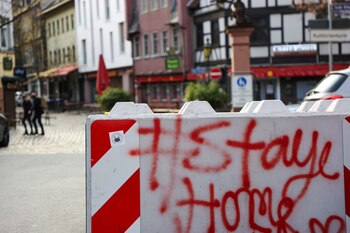
(Bloomberg) -- German companies’ optimism in an economic recovery is being tested as extended lockdowns at home and abroad curb activity.
A gauge of sentiment over current conditions fell in January, dragging the Ifo Institute’s business climate index down to 90.1. A measure of expectations for the next six months also declined amid uncertainty about the impact of new, more contagious coronavirus strains on the economy.
“The second wave of coronavirus has brought the recovery of the German economy to a halt for now,” Ifo President Clemens Fuest said.
Germany has extended tough lockdowns restrictions -- some in place since early November -- until at least mid-February, fueling concerns that the economy will shrink in the first quarter. While restaurants, bars, and most non-essential businesses have suffered most, manufacturers are increasingly being affected as well.
A survey of purchasing managers published last week showed delivery times and input costs rising because of limited freight capacity and a shortage of containers amid virus restrictions. That’s a dangerous trend for Germany, which relies heavily on trade.
So far, the nation has fared better than many of its neighbors. Output contracted 5% in 2020, compared with estimates for slumps of at least 9% in France, Italy and Spain.
For 2021, the German government and the central bank both expect growth of 3%, with Bundesbank President Jens Weidmann arguing that the latest curbs are likely to merely interrupt the economic recovery.
Últimas Noticias
Debanhi Escobar: they secured the motel where she was found lifeless in a cistern

The oldest person in the world died at the age of 119

Macabre find in CDMX: they left a body bagged and tied in a taxi
The eagles of America will face Manchester City in a duel of legends. Here are the details

Why is it good to bring dogs out to know the world when they are puppies




